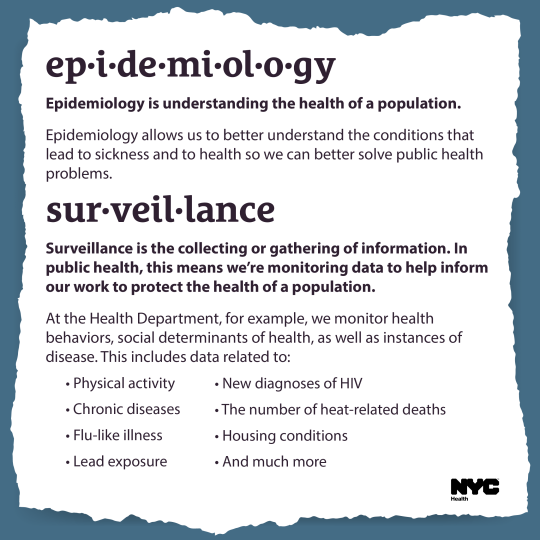#nyc public health

Epidemiology allows us to better understand the conditions that lead to sickness and to health so we can better solve public health problems.
To do this, we use surveillance, or the collecting or gathering of information. In public health, this means we’re monitoring data to help inform our work to protect the health of a population.
At the Health Department, for example, we monitor health behaviors, social determinants of health, as well as instances of disease. This includes data related to:
Physical activity
Chronic diseases
Flu-like illness
Lead exposure
New diagnoses of HIV
The number of heat-related deaths
Housing conditions
And much more!

On Monday, October 18, the New York City Board of Health passed a landmark resolution on racism as a public health crisis. The Health Department will be required to enact priorities for a racially just recovery fromCOVID-19and beyond.
The resolution recognizes the impact of racism on the health of New Yorkers and requests the Health Department perform a series of actions, including:
✅ Acknowledging examples of the Department’s historic role in divesting and underinvesting in critical community-led health programs
✅ Establishing a Data for Equity internal working group
✅ Making recommendations to the NYC Racial Justice Commission
✅ Conducting an anti-racism review of the NYC Health Code, in consultation with community organizations
New York City’s resolution is one of the first to tie specific actions to its declaration.
